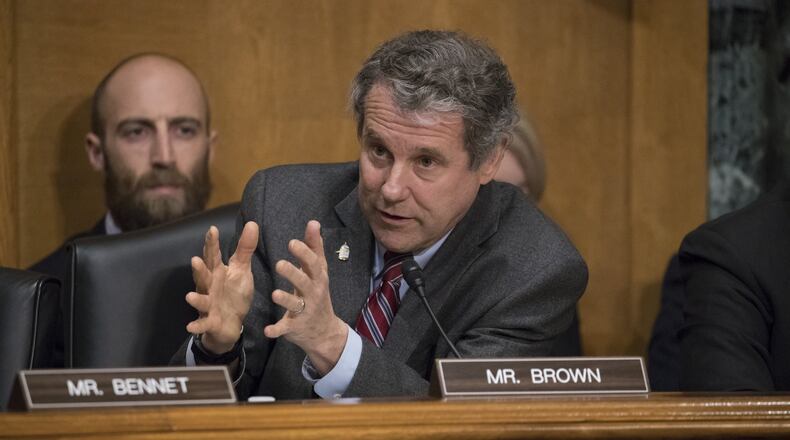Brown, the ranking Democrat on the Senate Banking Committee, had not been expected to vote for Mnuchin, who has come under fire from Democrats for what they complained were aggressive foreclosure tactics employed by OneWest Financial, a company controlled by Mnuchin until 2015.
Because Republicans control the Senate, Mnuchin is likely to be confirmed. President-elect Donald Trump tapped Mnuchin last November to be his treasury secretary.
Earlier in the day as Mnuchin testified before the Senate Finance Committee, Brown sharply questioned him over OneWest’s foreclosure practices. In rapid fashion, Brown asked a series of questions and demanded Mnuchin answer with a simple yes or no.
“Is it true … that OneWest foreclosed on 60,000 families nationwide and denied three-fourths of mortgage modification applications?” Brown asked.
“I am not aware of that,” Mnuchin replied.
Brown then asked if OneWest “violated” federal law “by initiating foreclosures on 54 active duty military families? Yes or no?”
Mnuchin acknowledged that “we unfortunately did foreclose on certain people in the military. It was quite unfortunate, it was inappropriate. We responded to those people and made them whole.”
Toward the end of their exchange, a seemingly frustrated Mnuchin told Brown, “It seems to me, in all due respect, you just want to shoot questions at me and not let me explain what are complicated issues.”
By contrast, Sen. Rob Portman, R-Ohio, a member of the finance committee, avoided confrontation and asked about changes in the tax law which he and other Republicans say would encourage U.S. multi-national companies to return hundreds of billions of dollars they have kept abroad.
Under current law, U.S. companies only pay the corporate tax on money earned overseas when they return that money to the parent company in the United States.Mnuchin said he had “spoken to several” chief executive officers of U.S. companies “who want to bring money back.”
Under current law, U.S. companies only pay the corporate tax on money earned overseas when they return that money to the parent company in the United States.
Mnuchin said he had spoken to several chief executive officers of U.S. companies “who want to bring money back.”
About the Author
